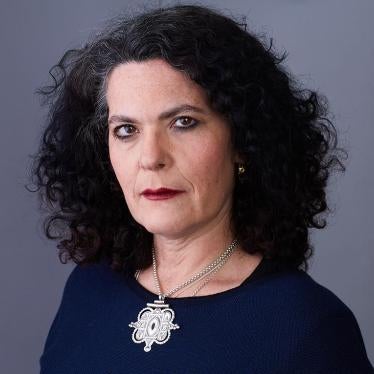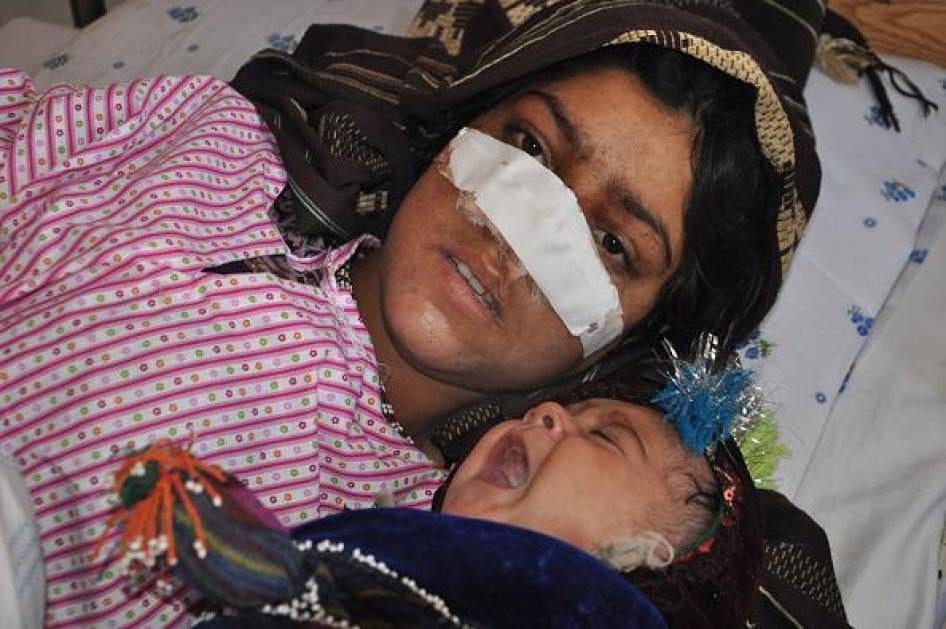The photo is shocking. A young woman – 20 years old – lies in a hospital bed, cradling her infant. Where her nose should be is instead a ragged bandage. Her eyes gaze out from over the bandage, looking far away and numb.
This is Raiza Gul. She married at age 15, in Afghanistan’s north, to a man named Muhammad Khan, the same man who Raiza Gul said tied her hands and cut off her nose with a pocket knife.
This horrific act, only the latest in a series of abuses throughout the couple’s marriage, was reportedly prompted by arguments over Khan’s recent engagement to a six or seven-year-old girl he planned to take as a second wife.
Anyone seeing this photo might imagine that Afghanistan is a completely lawless place where men abuse their wives and marry children at will with no fear of consequences.
Things were supposed to be different now.
In 2009, then-President Hamid Karzai signed legislation that dramatically expanded the list of abuses against women that constitute criminal offenses, and set tough new punishments. This law, the Law on the Elimination of Violence Against Women (EVAW), made assaulting a woman punishable by three to five years in prison. It made child marriage a crime for the first time, making those responsible for such marriages subject to two to five years’ imprisonment.
Under EVAW, Muhammad Khan, who is 25, should have been prosecuted when he married Raiza Gul, then a child under Afghan law. He should have faced the courts and a prison sentence every time he assaulted Raiza Gul. If police in Faryab had taken action just once, Raiza Gul wouldn’t be looking out from her hospital bed with those devastated eyes.
The problem is that neither Hamid Karzai nor current President Ashraf Ghani have taken meaningful steps to enforce the EVAW Law. An estimated 87 percent of Afghan women experience abuse in their lifetimes, and this continues today, while the law sits, largely unused, on a shelf.
President Ghani should improve enforcement of the law – for example, by recruiting more female police, ordering police and prosecutors to step-up enforcement, and establishing a system to monitor whether they do so. These are steps that he has not taken, even in the wake of the brutal mob killing of a young woman on the streets of Kabul last spring.
Afghanistan’s donors have largely stopped talking about violence against women.
Muhammad Khan is not the only one who has betrayed Raiza Gul.










